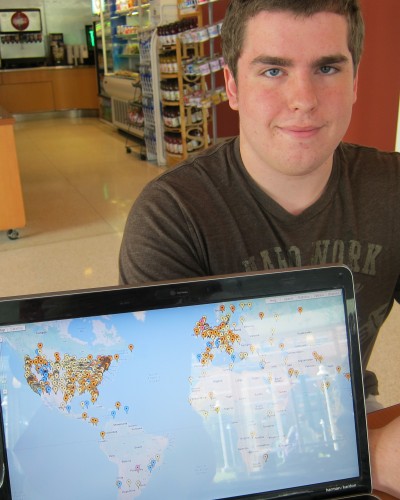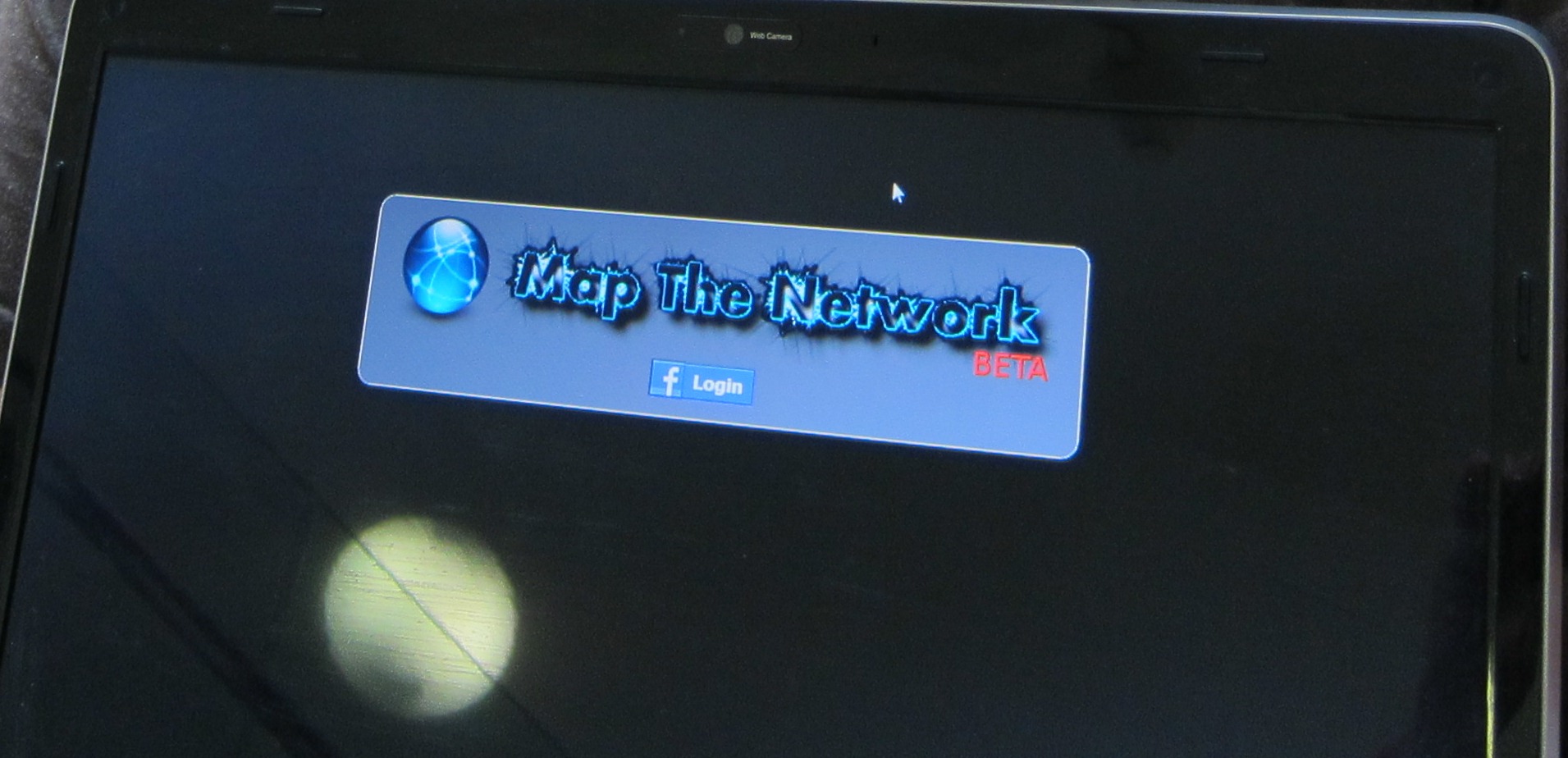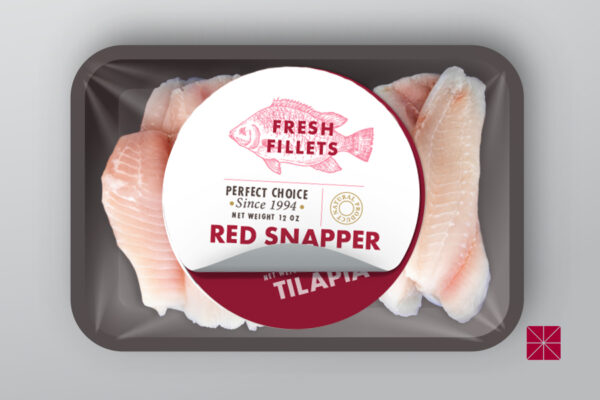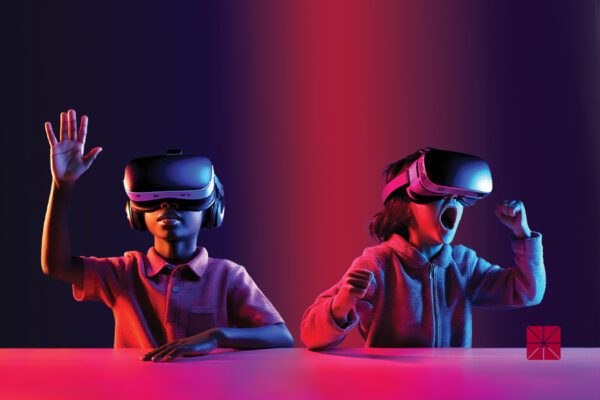
A map illustrates the locations of Facebook friends — and friends of Facebook friends — connected to David Tyler ’15. The Facebook application won Tyler a $500 cash prize in a technology design contest.
It’s a small world, so the old saying goes. We’re all connected by six degrees of separation, according to the classic theory. And then there’s that whole Kevin Bacon thing.
But what would happen if you tested out those ideas by using your Facebook connections? That’s what David Tyler ’15, a double major in
mathematics and computational science
, did, and the concept won him a $500 prize in a recent student design contest. Tyler’s idea and the beta launch of his Facebook application
Map the Network
tied for first place in the 2012 Student Design Contest during a conference held by the Orange County division of the IEEE, an international association of technology engineers.
“Map the Network” started as a lark, Tyler says. Over a dining hall lunch his freshman year he and a friend mused that “wouldn’t it be cool” if you could see how many people around the world you were connected to just by way of your Facebook friendships. Tyler was smitten with the idea, so he played with it for a while, writing unique software that taps into Facebook and Google Maps data. Gradually he created an application that users can download onto their Facebook page and use to create world maps that indicate not just the locations of their friends, but of all their friends’ friends up to – what else? – six degrees of connections.
“Unlike many similar applications, however, Map the Network also maps the locations of degrees of friends. For instance, the first degree are all of your friends, while the second degree is the friends of those in the first degree. Through the popular six degrees of separation, it is theoretically possible to map every person in the world (or at least the billion using Facebook) using only the six degrees of a single person,” Tyler says.
This year, with encouragement from Associate Professor Peiy Zhao, Ph.D., Tyler polished up Map the Network for the competition and presented it to the IEEE judges. Although he faced tough competition from graduate and Ph.D. students from throughout the county, he tied for first place with a UC Irvine graduate student.
Now the Reading, Mass. native, who also maintains Chapman Radio’s website and works in technical support at Leatherby Libraries, is busy fine-tuning the Facebook application. Chief among his goals is to write programming that will visually flesh out the connection maps with greater detail. All real-world connections won’t be truly represented, since the degree and numbers of connections depend on information provided solely by Facebook users, but the system and concept could have other applications where database information is more solid, he says.
“Someone at the conference thought it could be used for chemical analysis. You could see if a chemical is related to another chemical, or what it’s similar to,” he says.
Now that’s a small world that even Facebook curmudgeons could like.
Chapman student’s Facebook application gets a big ‘like,’ wins $500 in technology contest





Add comment